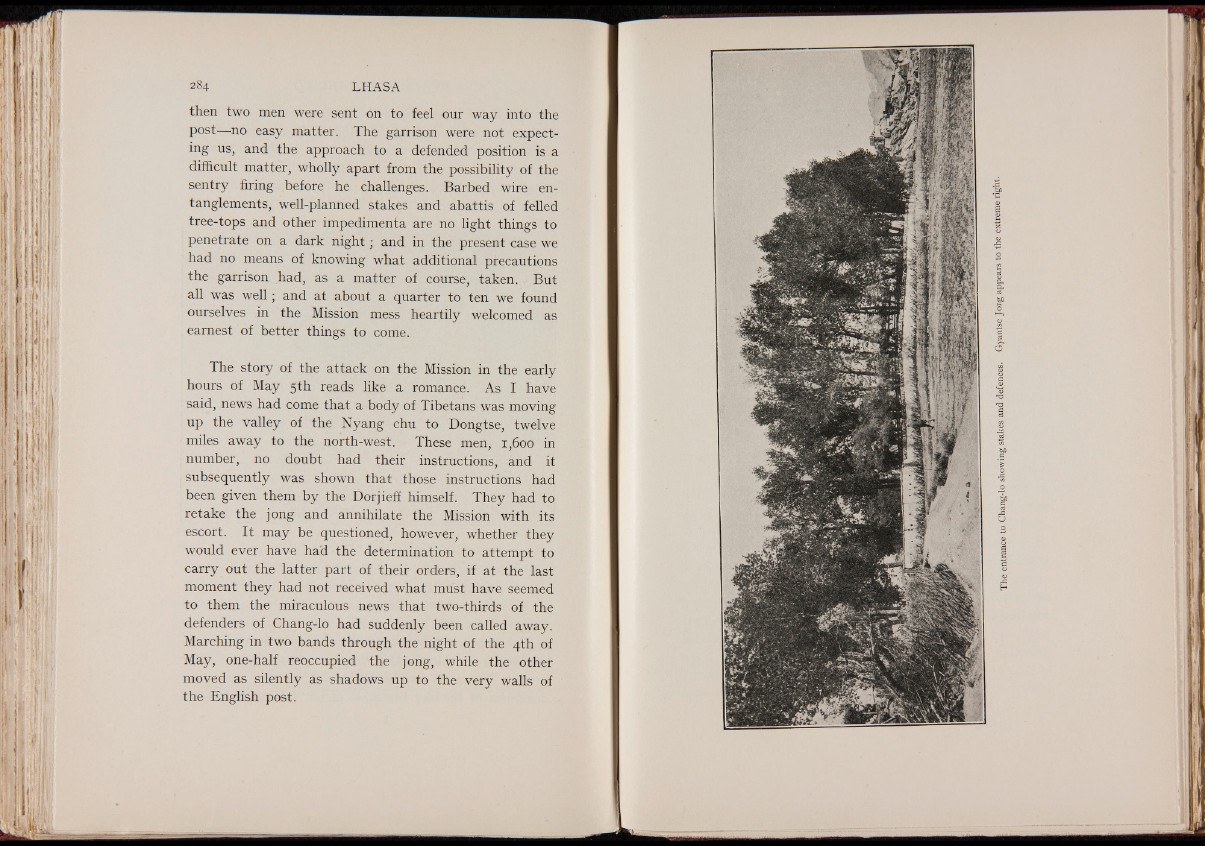
then two men were sent on to feel our way into the
Post— no easy matter. The garrison were not expecting
us, and the approach to a defended position is a
difficult matter, wholly apart from the possibility of the
sentry firing before he challenges. Barbed wire entanglements,
well-planned stakes and abattis of felled
tree-tops and other impedimenta are no light things to
penetrate on a dark night; and in the present case we
had no means of knowing what additional precautions
the garrison had, as a matter of course, taken. But
all was w e ll; and at about a quarter to ten we found
ourselves in the Mission mess heartily welcomed as
earnest of better things to come.
The story of the attack on the Mission in the early
hours of May 5th reads like a romance. As I have
said, news had come that a body of Tibetans was moving
up the valley of the Nyang chu to Dongtse, twelve
miles away to the north-west. These men, 1,600 in
number, no doubt had their instructions, and it
subsequently was shown that those instructions had
been given them by the Dorjieff himself. They had to
retake the jong and annihilate the Mission with its
escort. It may be questioned, however, whether they
would ever have had the determination to attempt to
carry out the latter part of their orders, if at the last
moment they had not received what must have seemed
to them the miraculous news that two-thirds of the
defenders of Chang-lo had suddenly been called away.
Marching in two bands through the night of the 4th of
May, one-half reoccupied the jong, while the other
moved as silently as shadows up to the very walls of
the English post.